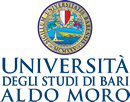Transizioni imperfette. Studi classici e scorie coloniali
DOI:
https://doi.org/10.15162/2465-0951/2123Parole chiave:
Italian archaeology, Italian Fascism, Postwar Italy, Italian colonies, Libya, Classical studies, Decolonization.Abstract
After the Second World War, Italy lost its colonies in application of the peace treaty (1947). This abrupt decolonization saved Italy from a serious processing of its colonial past, but did not mean that there was no longer any interest in the former ‘Empire’. The Roman past had been pivotal in the legitimation of Italian rule over Tripolitania, Cyrenaica, the Aegean Islands and so on: Classical archaeology had been used as a remarkable political tool. After the war, several institutions passed into the Republic without a deep renovation of their cultural agenda. Some scholars, who had previously worked in the colonies, actually continued their research, sometimes on site, sometimes with the (delayed) publication of the excavations. In the context of the debate on the existence of a ‘fascist culture’ in Italy, the article examines some cases in which ideological issues and ‘colonial perspectives’ have long influenced institutions and individuals, in the field of classical archaeology.Downloads
Pubblicato
2024-12-30
Fascicolo
Sezione
Decolonizzare gli studi classici? Per Mariella Cagnetta a 25 anni dalla scomparsa - a cura di L. Canfora e C. Schiano





